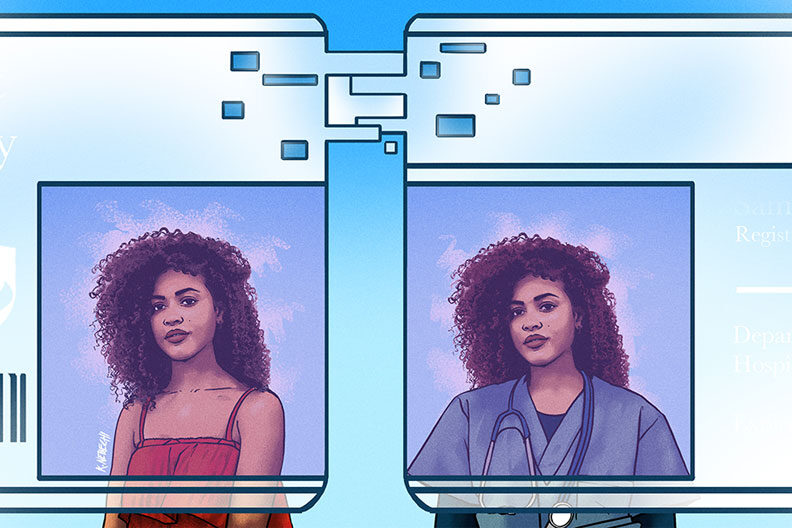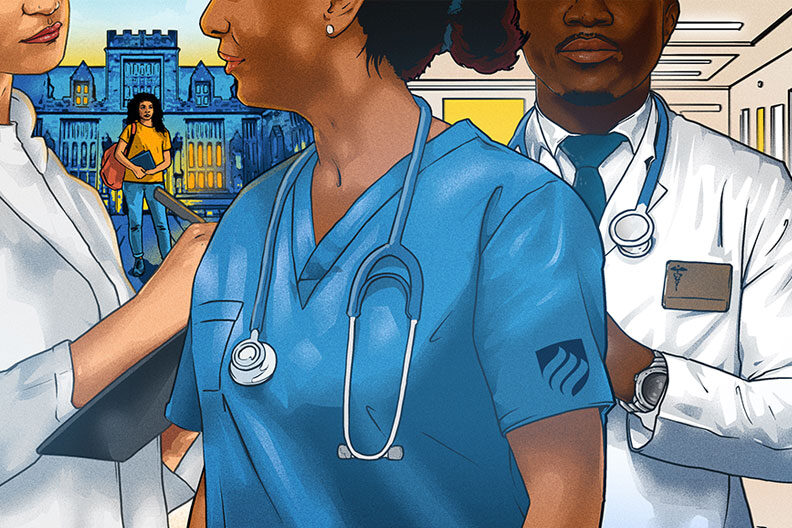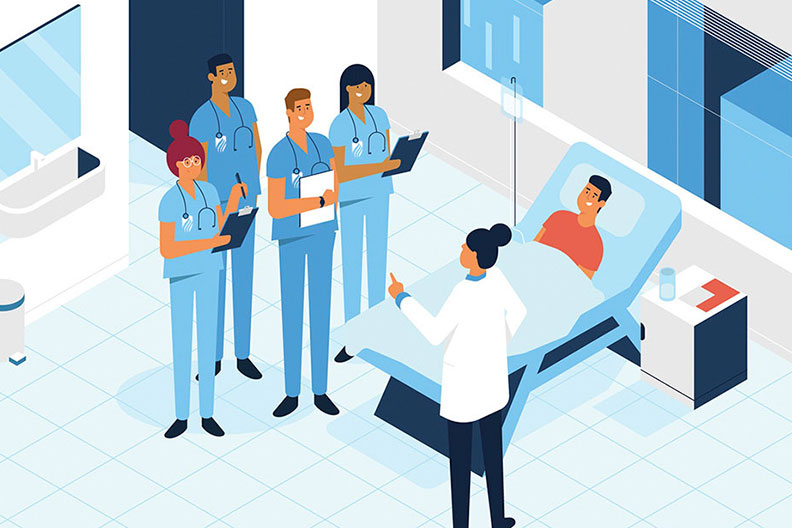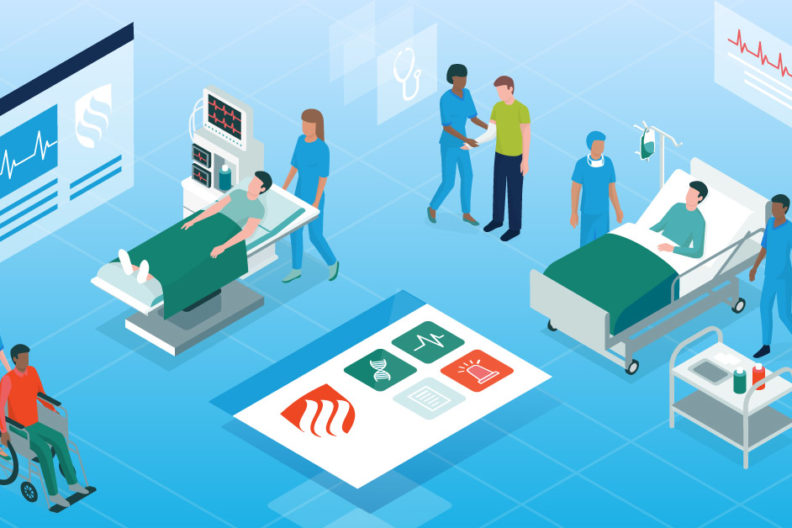3 Registered Nursing Requirements to Become a Nurse
NURSING AND HEALTH SCIENCES | 4 MIN READ

The demand for registered nurses continues to rise, and there are no signs it is slowing down. If you plan to help meet this demand for more nurses by becoming a Registered Nurse, you’ll need to meet certain requirements.
First, let’s consider the career field. The U.S. Bureau of Labor Statistics predicts a 15% increase in nursing jobs by 2026. Registered nurses make an average of almost $71,000 a year, with those in specialized fields earning higher salaries.
There are ways to become a nurse, for both new high school grads and nontraditional students. That said, here are three requirements you need to meet to enter the field as a registered nurse:
1. Complete a Nursing Degree Program
Registered nurses are required to have at least an associate’s degree, which typically takes less time and costs less than other educational options. However, RNs who earn a bachelor’s or advanced degree have a higher earning potential and an advantage when applying for jobs.
That’s why most RNs earn a bachelor’s degree. Students can earn a bachelor of science in nursing through a traditional four-year program that includes liberal arts classes, for a total of about 120 hours.
Those who have already earned a non-nursing degree can opt for a direct-entry program. This program usually takes less time because it does not include as many (or any) general education classes.
Some schools offer “bridge” programs for licensed practical nurses who want to earn a BSN or master of science in nursing. These are also more accelerated and focused options than a traditional four-year degree path.
Finally, some aspiring RNs opt for a diploma program, typically a three-year commitment that is operated by a hospital. Very few diploma programs exist today.
Regardless of which avenue you choose, you’ll be taking courses in anatomy and physiology, chemistry, microbiology, nutrition and psychology. In addition to the time you spend with your nose in a textbook, you’ll get hands-on experience during clinical courses. The settings range from hospitals and nursing homes to clinics and public health departments.
2. Take the Licensing Exam and Apply to Your State Nursing Board
All registered nurses must pass the National Council Licensure Examination (NCLEX), regardless of where you plan to practice. The NCLEX has eight content areas but generally requires you to show that you can make and apply analyses based on the nursing knowledge you gained in school. The exam is pass/fail.
Each state has different eligibility criteria for working as a registered nurse. It’s best to research that while you are still a student. Your school counselor or professors should be able to help.
3. Decide Whether You Want a Nursing Specialization
Some nursing students feel drawn to a particular work setting or patient population. Those students may want to enroll in more specialized courses or do their clinicals in an environment that suits their interests.
Gerontology, midwifery and orthopedics all have experienced a surge in popularity that parallels the patient demand for that type of care.
You might also be interested in caring for children, another popular specialization. Neonatal nurses treat newborns who may have complications due to premature birth, genetic conditions or acquired illnesses. Neonatal nursing usually requires a BSN and a national certification from an organization such as the National Certification Corporation or the American Nurses Credentialing Center.
Pediatric nurses provide preventive and acute care for children and adolescents in all settings. They may also specialize in areas such as pediatric cardiology, dermatology, gastroenterology or oncology. Pediatric nurses usually have a BSN, and those who are certified by the Pediatric Nursing Certification Board may earn higher salaries and have more career opportunities.
Discover Your Nursing Education Options
Elmhurst University offers the real-world experience and personal mentoring you need to launch a professional career in nursing and the health sciences. Nurse.org recently named Elmhurst one of the 10 best nursing schools in Illinois, and the University’s Master’s Entry in Nursing Practice (MENP) program achieved a 100 percent pass rate on the NCLEX.
Request more information today!










Leave a Reply